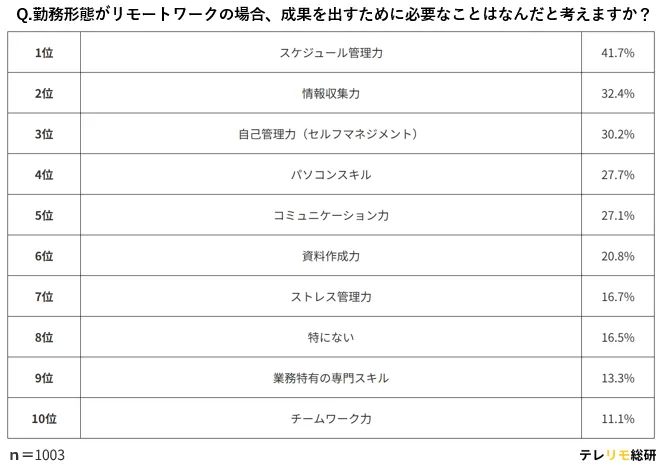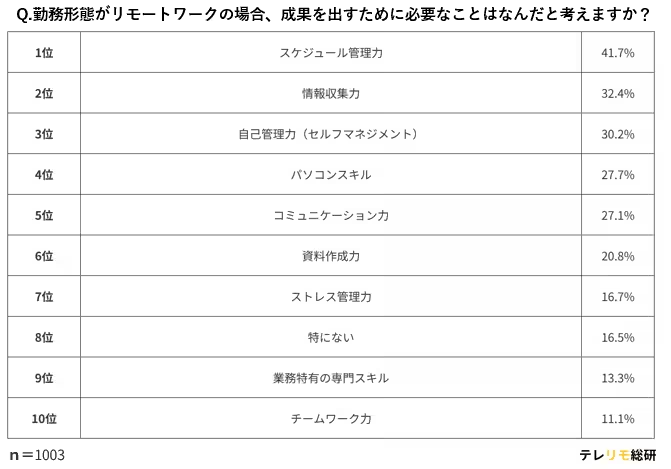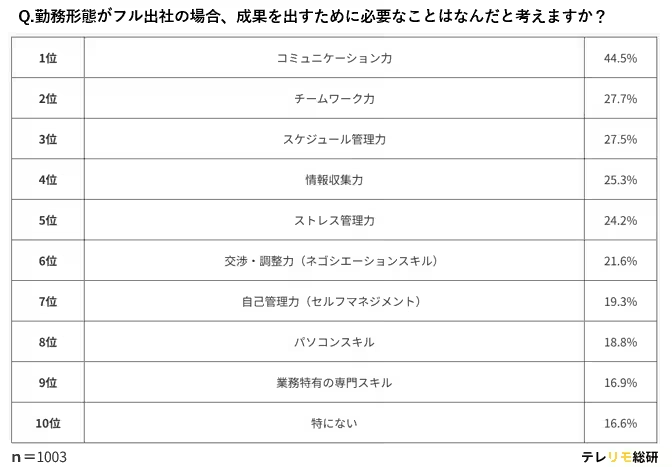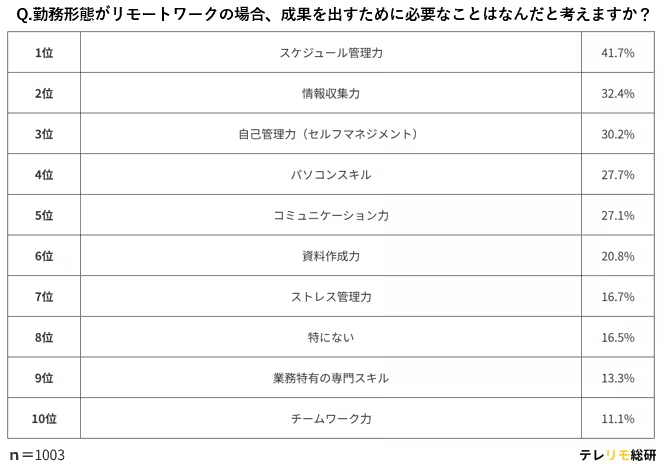

How Remote Work and On-site Employment Demands Vary Skills Differently
Differences in Required Skills for Remote and On-Site Work
In a rapidly changing work landscape marked by rising wages, human capital management, and enhanced governance, the expectations for individual performance are evolving. LASSIC, operating the Telework and Remote Work Research Institute in Tokyo, conducted a survey to explore the skills necessary under two distinct working formats: remote work and full office attendance. This research surveyed approximately 1,000 business professionals, aiming to reveal how requisite competencies shift based on the working mode.
Understanding Your Strengths: Remote vs. Office
The first question directed to respondents was about the essential skills needed for success in a remote working environment. The answers revealed a significant emphasis on abilities that foster autonomy, such as time management, information gathering, and self-discipline. In contrast, for those working full-time in the office, communication skills, teamwork, and negotiation abilities were prioritized.
This discrepancy indicates that the physical distance and working conditions have profound implications on the skills considered crucial for success in different environments. In remote work scenarios, professionals are required to self-motivate and maintain a structured schedule without the immediate feedback provided by colleagues or supervisors. This reliance on personal responsibility can be both liberating and challenging, emphasizing the importance of self-management.
The Value of Interpersonal Skills in Office Settings
Conversely, working on-site inherently fosters interdependence among team members. The presence of colleagues promotes spontaneous interactions, which can lead to impromptu discussions and collaboration, illustrating the importance of nuanced interpersonal skills. Higher points for communication and teamwork abilities—with a difference of 17.4 and 16.6 points respectively—highlight a clear divergence in the skill sets sought after in office versus remote settings.
Effective face-to-face communication allows employees to read body language and organizational dynamics that often go unnoticed in virtual settings. Spontaneous conversations in elevators or break areas can lead to valuable relationship-building opportunities which reinforce trust and collaboration.
Navigating Stress in the Workplace
Another interesting finding from the survey is that employees in full office environments tend to value stress management skills more highly than their remote counterparts. The daily interactions and the necessity to negotiate various stressors—be it commuting on crowded trains or dealing with office politics—require a sturdy capacity to manage stress effectively. As such, the on-site work context not only demands proficiency in interpersonal communication but also a robust framework for handling interpersonal dynamics and external pressures.
The Draw of Remote Work Skills
However, remote work is not without its own advantages. The high demand for computer literacy resembles a growing trend wherein professionals need to adeptly navigate evolving digital tools. This creates an opportunity for individuals in remote positions to sharpen their skills in software and technology, which are continually advancing. The ability to adapt to new technologies is crucial in maintaining productivity in a remote setting.
Making a Choice: Tailoring Your Work Style
Amidst the resurgence of office attendance, many companies are striving to re-establish feelings of cohesion and connectivity among employees. Recognizing that personal strengths differ, it is vital for professionals to consciously select the working style that amplifies their capabilities—whether it’s the interpersonal enrichment found in an office or the autonomy harbored in a remote setup.
As work approaches a hybrid model, empowering individuals to leverage their unique skill sets can lead to more tailored and productive experiences. As such, professionals are encouraged to reflect on which environment compliments their work style best and allows them to flourish in their roles.
Survey Overview
- - Duration: April 8, 2025 – April 16, 2025
- - Participants: 1,003 working individuals aged 20-65 with experience in remote work
- - Methodology: Online survey II.



Topics People & Culture)










【About Using Articles】
You can freely use the title and article content by linking to the page where the article is posted.
※ Images cannot be used.
【About Links】
Links are free to use.